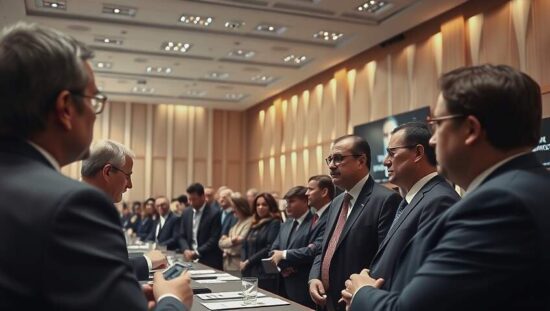European Commission President Ursula von der Leyen aggressively championed the EU’s ambitious Artificial Intelligence strategy during the recent G20 summit in South Africa, positioning it as a pivotal moment for global leadership in a rapidly evolving technological landscape. Her remarks, delivered during the final working session, underscored a three-pronged approach encompassing substantial investment, widespread adoption across sectors and a deliberate emphasis on international collaboration.
Von der Leyen’s declaration, framing AI as a “revolution that will not repeat itself” served as a call to action, urging G20 nations to proactively engage with the EU’s framework to avoid being left behind. The strategy hinges on a significant expansion of the EU’s existing infrastructure, including the planned construction of fifteen large-scale AI manufacturing facilities in partnership with private investors, reflecting a clear intent to establish European dominance in hardware capabilities.
However, the presentation glossed over potential pitfalls and raised critical questions regarding the EU’s approach. While stressing responsible innovation, the plan lacks explicit details outlining safeguards against algorithmic bias and potential displacement of labor resulting from the widespread AI adoption she advocates. The insistence that organizations proactively consider AI solutions in addressing challenges, without establishing clear ethical guidelines or regulatory oversight, risks exacerbating existing inequalities and creating unforeseen societal consequences.
The international component, particularly the “Destination Earth” program, which aims to model extreme weather events for improved disaster preparedness, presents a valuable opportunity for collaboration. However, critics have pointed out that the program’s effectiveness hinges on equitable data sharing and technology transfer – issues that require meticulous attention to avoid perpetuating power imbalances between developed and developing nations. The relationship with Caribbean and African partners, while touted as collaborative, demands scrutiny to ensure genuine partnership rather than a form of technological neo-colonialism.
Ultimately, Von der Leyen’s presentation served as a stark reminder of the geopolitical significance of AI. While the EU’s strategy exhibits ambition and intent, its success will depend not only on technological advancement but also on a robust and transparent framework that addresses the complex ethical, economic and social challenges inherent in this transformative technology. The G20’s response will be crucial in determining whether the EU’s vision for AI leadership translates into genuinely beneficial and equitable global progress.





